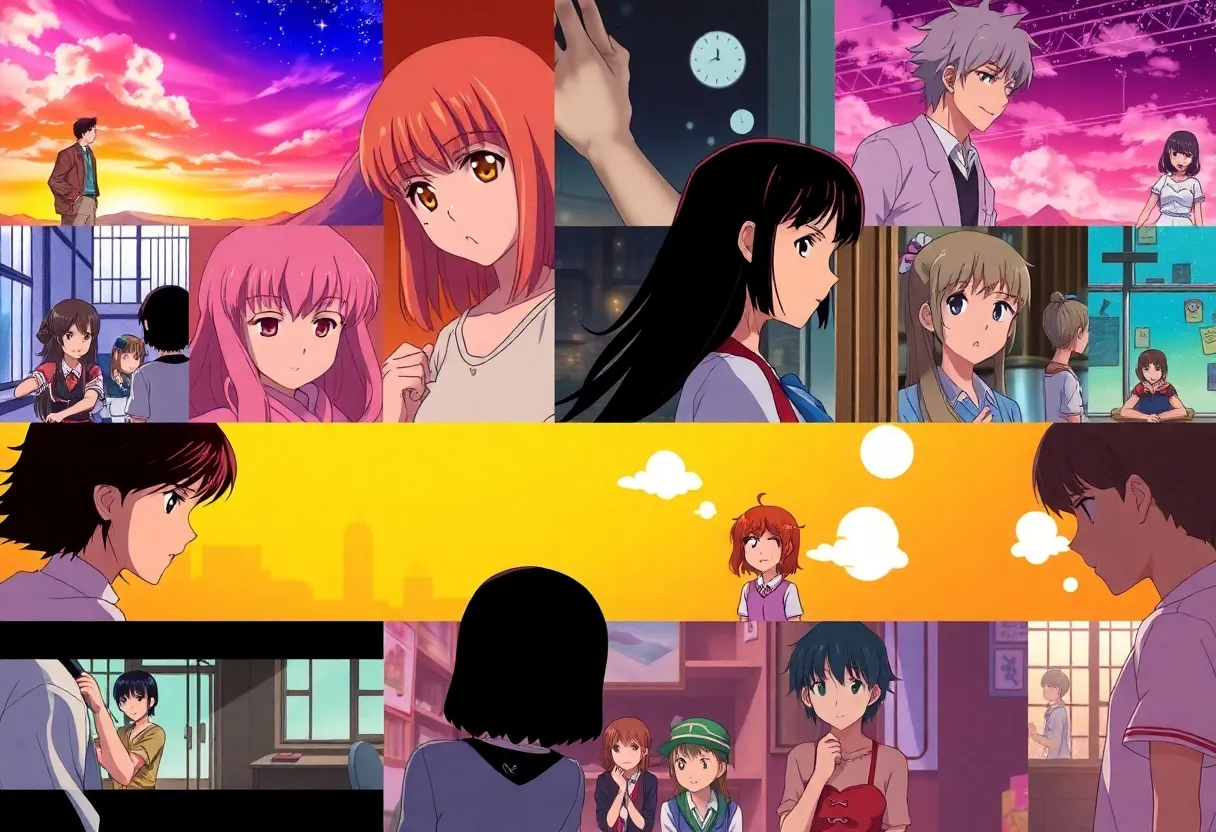News Summary
Recent trends indicate a shift in how audiences perceive older anime, particularly those with controversial themes. Critiques have intensified as viewers evaluate issues of representation, consent, and ethics in storytelling. Titles once considered edgy now face scrutiny for outdated narratives and problematic content, leading to reevaluation of their place in contemporary media. This growing awareness presents a challenge to traditional norms within the anime genre, highlighting the importance of responsible storytelling and cultural sensitivity.
City: Tokyo
Assessing the Changing Perception of Controversial Anime Titles
In recent years, there has been a noticeable shift in how audiences and critics view older anime series, particularly those with controversial or problematic elements. Originally popular and often considered edgy entertainment, many of these titles are now scrutinized under contemporary standards that emphasize issues such as representation, consent, and social responsibility in storytelling.
Increased Critical Engagement and Perspective Diversity
Today’s viewers approach anime through diverse perspectives, leading to a reevaluation of shows that once faced little to no criticism. Titles that relied on outdated gender roles, inappropriate relationships, or insensitive humor are increasingly being questioned. This cultural shift has intensified conversations about the acceptability of certain themes and behaviors depicted in older series.
Examples of Controversial Anime and Their Issues
Several well-known anime titles exemplify these problematic themes. For example, Golden Boy centers on Kintaro Oe’s obsession with women, portraying behaviors such as spying and inappropriate physical contact without significant repercussions. Although considered humorous at the time, such actions are now viewed as unethical and unacceptable.
Similarly, Kiss x Sis features an incest-adjacent premise that is played for laughs, raising serious ethical concerns about power dynamics and boundaries. Its portrayal of a romantic relationship between step-siblings challenges modern standards of appropriate content.
Another example, Hetalia: Axis Powers, reduces complex historical traumas to caricatures and humorous stereotypes, trivializing painful pasts and offending many viewers. Such portrayals are now criticized for insensitivity and lack of cultural awareness.
Older Titles with Questionable Content
Some series rely heavily on problematic themes, including Kodomo no Jikan, which depicts a romantic obsession between a teacher and a young student, framing what would be considered disturbing themes in a humorous or quirky manner. Green Green presents consistent objectification within a school environment, reflecting poor attitude toward consent and personal boundaries.
Other titles like School Days focus on emotional manipulation among characters, culminating in violent outcomes that critique traditional romance tropes but also include content that is unsettling by contemporary standards.
The shock humor of Bludgeoning Angel Dokuro-chan—centered around violence toward minors—raises questions about the limits of comedy and appropriateness. Similarly, Midori: Shojo Tsubaki depicts extreme abuse with a lack of empathy, making it widely unacceptable in today’s media environment.
Yaoi and Romantic Tropes Under Scrutiny
Other series like Wolf Girl and Black Prince depict controlling relationships viewed today as toxic, while Marmalade Boy explores potentially ethically questionable romantic pairings, such as relationships between half-siblings. These themes, once considered acceptable or humorous, are now recognized as problematic and often criticized for romanticizing unethical behavior.
Shifts in Viewer Expectations and Cultural Standards
The broader conversation surrounding issues like consent and emotional manipulation reflects an evolving cultural landscape. Many older anime, once celebrated for their daring content, are now regarded as outdated or offensive due to their handling of sensitive topics. The increasing awareness of social responsibility influences how new audiences perceive these shows.
Impact on Classic Anime
The result of these discussions is a reevaluation of many classic series. Titles that were once viewed as edgy or humorous are now often labeled as problematic, and some are removed from mainstream conversations or are subjected to greater criticism. This shift underscores a growing emphasis on ethical storytelling and the need to challenge harmful stereotypes in media.
Conclusion
As conversations about representation, consent, and social responsibility gain prominence, the perception of older anime titles continues to evolve. What was once seen as daring or provocative is increasingly scrutinized for its insensitivity or harmful tropes. This dynamic highlights the importance of cultural context in media critique and reflects a broader societal push towards more responsible storytelling in animation.
Deeper Dive: News & Info About This Topic
HERE Resources
Additional Resources
- Anime News Network: The Colors Within Review
- Wikipedia: Anime
- FandomWire: Netflix’s Devil May Cry
- Google Search: Anime Representation
- CBR: Your Lie in April Representation
- Google Scholar: Anime and Representation
- Dexerto: Castlevania Nocturne Writers Criticism
- Encyclopedia Britannica: Anime Critique
- Anime Herald: Queer Representation in Ouran High School Host Club
- Google News: Anime Representation
Author: STAFF HERE WASHINGTON DC
The WASHINGTON DC STAFF WRITER represents the experienced team at HEREWashingtonDC.com, your go-to source for actionable local news and information in Washington, DC, and beyond. Specializing in "news you can use," we cover essential topics like product reviews for personal and business needs, local business directories, politics, real estate trends, neighborhood insights, and regional news affecting the area—with deep expertise drawn from years of dedicated reporting and strong community input, including local press releases and business updates. We deliver top reporting on high-value events such as the National Cherry Blossom Festival, Kennedy Center Honors, and the Washington Auto Show. Our coverage extends to key organizations like the Greater Washington Board of Trade and Destination DC, plus leading businesses in government contracting and technology that power the local economy such as Lockheed Martin and Amazon. As part of the broader HERE network, we provide comprehensive, credible insights into the dynamic landscape of the Washington metropolitan area.




